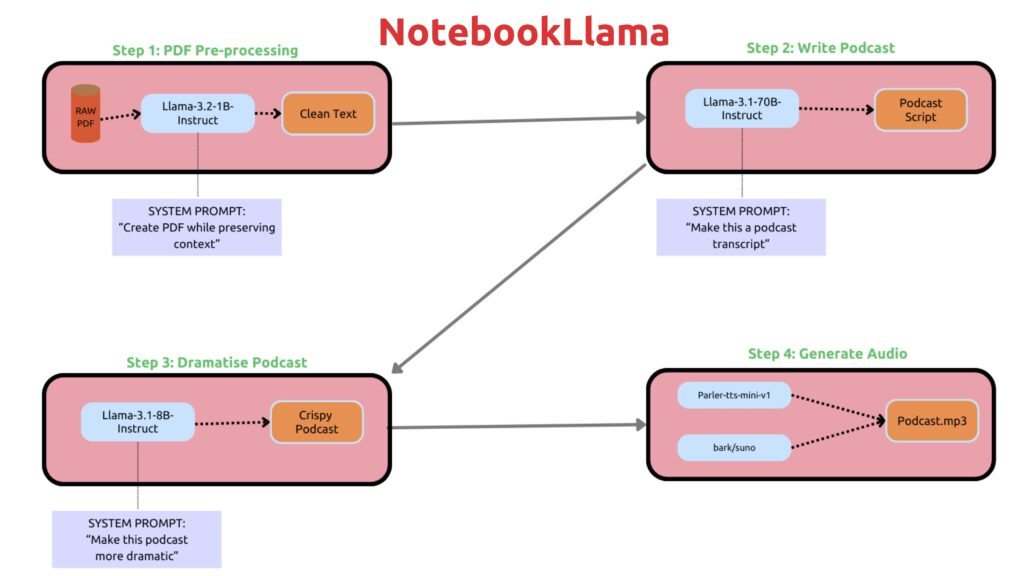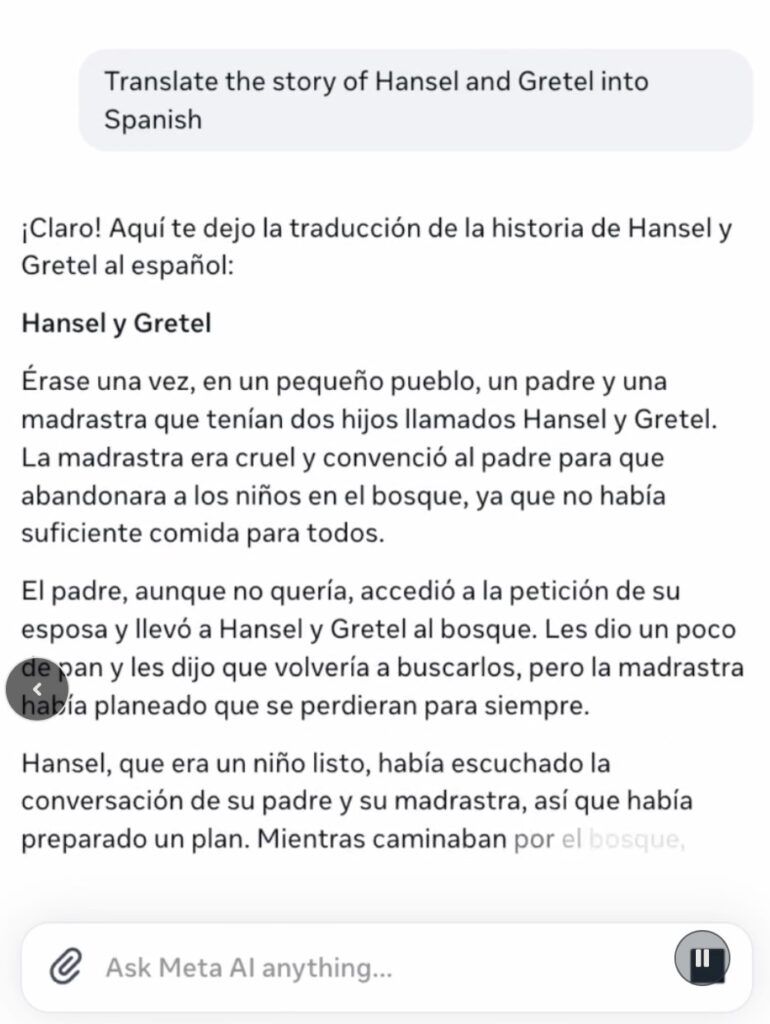An Open-Source Solution for Seamless Audio Content Creation
In a bid to revolutionize podcast production, Meta has unveiled NotebookLlama, an open-source implementation that mimics Google’s viral podcast generator, NotebookLM. This innovative tool leverages Meta’s own Llama models to streamline the transformation of static documents into dynamic audio content.
- Streamlined Audio Generation: NotebookLlama provides a guided, multi-step workflow that converts PDFs into conversational podcasts, making audio content creation accessible to a wide range of users.
- Customizable Workflow: The tool employs various Llama models for transcription and dramatization, allowing users to experiment with prompts and models to optimize their audio output.
- Versatile Applications: NotebookLlama opens up new possibilities for educators, businesses, and creators to turn written content into engaging audio, enhancing the accessibility of information in diverse formats.
The rise of multimedia content has changed how we consume information, with podcasts becoming increasingly popular as an engaging medium. However, generating high-quality audio content from written materials has historically been a complex and time-consuming process. Meta’s NotebookLlama addresses this challenge by providing a streamlined solution that converts static documents, such as PDFs, into dynamic audio presentations.

By leveraging advanced AI technology, NotebookLlama not only simplifies the podcast creation process but also enhances the quality and engagement level of the resulting audio. This development marks a significant step forward in the evolution of audio content production, enabling creators to reach their audiences in new and innovative ways.
How NotebookLlama Works
The NotebookLlama framework guides users through a multi-stage process to transform written content into podcasts. The workflow begins with Llama-3.2-1B for text extraction, followed by Llama-3.1-70B to generate an initial transcript. Next, Llama-3.1-8B adds a dramatic and conversational style to the text, making it suitable for audio presentation. Finally, the output is converted into audio using Parler TTS, allowing for natural-sounding speech.

Each stage of the process is customizable, giving users the flexibility to refine prompts and experiment with different models to achieve the desired results. This modular approach not only enhances the user experience but also fosters creativity, allowing content creators to adapt their audio projects to suit various audiences and objectives.
Enhancements and Limitations
While NotebookLlama showcases impressive capabilities, it also faces challenges, particularly concerning the quality of the generated audio. Initial samples have been described as having a robotic quality, with voices sometimes overlapping in awkward ways. The researchers behind the project acknowledge that these limitations stem from the text-to-speech models used, indicating that improvements in audio generation are still needed.
Despite these drawbacks, the potential for future enhancements is significant. By incorporating stronger models and exploring additional methods, the quality of audio generated by NotebookLlama could greatly improve, making it a more compelling option for creators.
Diverse Use Cases for NotebookLlama
NotebookLlama presents a range of applications across various fields, offering opportunities for content creators, educators, and businesses. For instance, educators can turn academic papers and lecture notes into easily digestible audio episodes, while businesses can convert lengthy reports into concise audio summaries for team members on the go. Additionally, creative projects can benefit from the ability to generate audio adaptations of books or articles, adding dramatic flair to the content.
This versatility positions NotebookLlama as an invaluable tool for anyone interested in exploring AI-driven audio production. By making the process of creating high-quality podcasts more accessible, it empowers users to share knowledge and stories in engaging ways.
Embracing the Future of Audio Content Creation
Meta’s NotebookLlama represents a transformative approach to podcast production, harnessing the power of AI to simplify and enhance the process of turning written content into audio. As the demand for diverse audio content continues to rise, tools like NotebookLlama will play a crucial role in shaping the future of multimedia storytelling.
With its customizable workflow and broad applications, NotebookLlama not only opens new avenues for content creation but also highlights the potential of AI to enrich our engagement with information. As improvements are made and the technology evolves, we can expect to see even greater advancements in how we create and consume audio content, paving the way for a new era in the world of podcasts.
